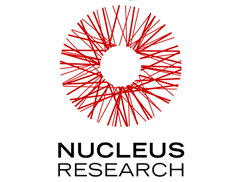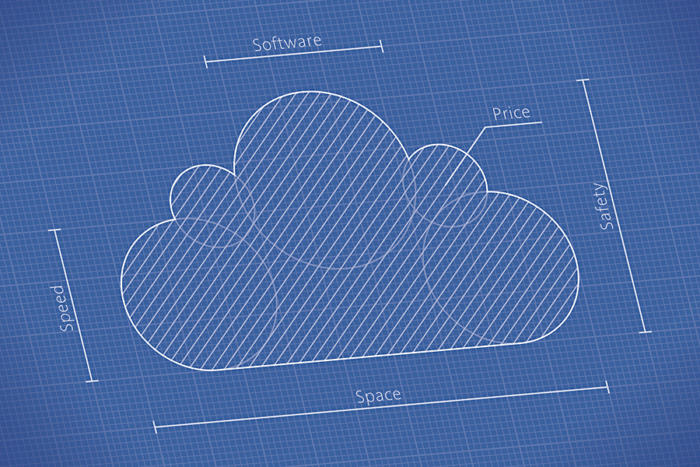According to Gartner Research, spending on “cloud” or browser-based applications will dominate the software budgets of North American organizations in the years to come (Gartner Research). This finding includes planned spending for cloud accounting systems. Why? Because businesses are realizing the combination of power (functionality specific to their market vertical) and the outsourcing of software maintenance are transforming their operations, and creating real returns. We’ve lent our top ten reasons why “cloud accounting” is better (see below).

We’ve considered ten reasons why cloud accounting applications are transforming business practices and helping business owners realize high return on investment. “Why it’s better” is considered in light of our software offerings – Intacct.
1. You Don’t Host It – Because cloud accounting is “browser-only required” it refocuses your efforts. That is, cloud accounting shifts the paradigm away from IT infrastructure and hosting to using systems focused on executing and tracking your business strategy. This pivot allows for greater specialization, fewer management resources dedicated to compliance, and less concern about data loss and business continuity.
2. Automates Your Processes – By automating basic functions like invoicing, collections, bill payment, data input, reporting, and more advanced processes like consolidation, scheduling, metrics calc., and forecasting, cloud apps reduce staff time, errors, and admin focus. Custom workflows, advanced features, configuration, and some tinkering go a long way to automating your business processes and reaping returns.
3. Solves Complex Processing & Reporting – Cloud accounting apps offer advanced features for transaction processing and reporting. Key, because despite other favorable aspects of cloud accounting, businesses likely won’t migrate from starter systems unless they need features like multi-entity management, multi-currency, e-commerce integration, revenue recognition, industry specific reporting, or other advanced options.
4. Offers Real-Time Results – Cloud accounting offers stakeholders two important means of gaining immediate feedback: reporting and notifications. In best practice environments, financial and metrics reporting is summarized onto dashboards offering a unified view of financial and operational results. In the second instance, notices related to use events, approvals, and scheduling are available. Both in real-time.
5. Distributes Workflows Effectively – With cloud accounting, the distribution of work (processing and reporting) can take place across multiple groups, locations, business types, and trade requirements. This distribution also extends the specialization of your workforce, allowing your business to have third parties play a role in the servicing of your accounting function, reporting, and analysis.
6. A Unified Solution – Big business has long realized the value of centralized systems to manage their operations (Viz. common technology infrastructure with a single database). Cloud apps apply the same “stack” and “suite” approach, and because of browser-only access, allows sharing of data, workflow, reporting, and the “plugin” of staff where needed. This approach also relieves the need for certain custom integrations.
7. Highly Configurable – Implementing a new system pays off when it conforms to your internal (sometimes manual) processes. Matching system configuration to your business practices is especially important for accounting transactions, approvals management, report distribution, and the gatekeeping related to access. Custom workflows, advanced configuration, and know-how, allow us to match many internal processes.
8. It’s Evolving – Our featured offerings push updates on a quarterly or semi-annual basis straight to your browser session. Updates address significant requests of a large cross section of the user base and their ongoing needs. The nature of these enhancements seeks to address ease of use, and extend functionality. Over time, the release of features specific to specialized verticals will extend their share of niche markets.
9. Portable – With the advent of smart devices it’s a “take it along world.” No different with cloud accounting. Employee and management maintenance of basic data input and reporting can be executed using portable devices, with the development of extended functions in the works. The point being that moving from browser access on your desktop/laptop to a PDA is a straight-forward transition in the Cloud.
10. Gaining Market Share – Recent announcements from respected research and technology services show that our featured vendors are gaining market share and experiencing rapid growth. As with any major trend, increased market share and acceptance allows for further internal development, and external partnerships with key third parties. Both result in better functionality, specialization, and return on investment.
“As economic pressures increase and other factors come into play, such as resource limits and skill shortages, organizations have expressed overwhelming interest in cloud computing and other options that externalize IT.“ (Gartner Research)
According to Gartner Research, spending on “cloud” or browser-based applications will dominate the software budgets of North American organizations in the years to come (Gartner Research). This finding includes planned spending for cloud accounting systems. Why? Because businesses are realizing the combination of power (functionality specific to their market vertical) and the outsourcing of software maintenance are transforming their operations, and creating real returns. We’ve lent our top ten reasons why “cloud accounting” is better (see below).

Businesses adopt cloud accounting systems when they realize value in-excess of cost (positive ROI). To determine ROI, we analyze the costs of otherwise internally hosted software, your productivity gains (hours and errors reduced), and increased reporting visibility. 
ROI Framework by Nucleus Research – An industry model for determining returns from cloud accounting software.
Nucleus Research Cloud Accounting Software | NDH Group Chicago
Nucleus Research is an independent, full service Research and IT Advisory Firm that specializes in the financial assessment of technology throughout the product life cycle. The foundation of our research is a case based methodology that involves interviewing customers who have implemented a technology solution. By following this case based, investigative approach we can deliver factual advice and analysis that will help the organization articulate the financial, operational and overall business value of implementing the technology solution.
Your business is growing and you’ve validated the need for change to cloud accounting. Now consider which system will best support your next phase of growth. An analysis of “best fit” is based on the specifics of your business and industry, other business applications you may be using (CRM, e-commerce), and your preferences. Our “showroom” (see below), highlights features, options, and other subscription details for our offered solutions. With great options available, let us help you consider which system is right for your business.

Discovery of your needs and business practices allows us to make a recommendation on the right system, when to move, and the expected payoff (ROI). Discovery also allows us to design a relevant proof of concept (demo), and migration plan. This full assessment is completed prior to an agreement to implement and support your system use. As your implementation begins, our expertise in project management, technology, accounting, and reporting ensure long-term success (more below).

We manage for long-term success, and differentiate our services, using the expertise we’ve developed over the past ten years. Here’s our recipe for making your implementation work:
Six System Objectives for Meeting the New Rev Rec Standards
Dear Colleague,
For the full year ended December 31, 2019, the new standards for revenue recognition will become audit guidance for non-public companies (public companies have reported under these standards since 2018). This global standard –Revenue from Contracts with Customers— jointly authored by the Financial Accounting Standards Board (FASB), and counterpart, International Accounting Standards Board (IASB), creates a framework for revenue recognition consistent with performance and entitlement.
While changes to the timing and amount of revenue businesses recognize will vary depending on the type of contracts they execute, the need to reconfigure accounting/ ERP systems will be broad-based. As a primer to meeting the new rev rec standards, and managing a contract portfolio, we have considered six objectives for your ERP. We look forward to discussing these objectives with you, and helping you to consider your preparedness for ASC 606.
Seth Pomeroy, Partner, NDH
312-461-0505
seth@ndhcpa.com
Sage Intacct Contract Manager – Meeting the New Contract-Based Rev Rec Standards
Dear Colleague,
To meet the new contract-based rev rec standards you look for ways to modify your existing ERP. This may involve repurposing your system, leaving you with a “Frankenstein” solution.
Alternatively, Contracts by Sage Intacct is architected to meet the new standards, and manage your dynamic contract portfolio. All within a single system, without unsustainable workarounds.
Or, schedule a demo walkthrough by contacting one of our solution specialists.
Sincerely,
Seth Pomeroy, Partner, NDH
312-461-0505
seth@ndhcpa.com
New Revenue Recognition Standards ASC 606
Dear Colleague,
As CFO’s prepare to address the new Standard for revenue recognition as required by ASC 606, “Revenue from Contracts with Customers,” they will need to adopt new tactics for managing revenue, and systems to support the Standard. Not only are the narratives of “when? and “how much?” revenue to recognize changed, but broader changes in the economy including subscriptions, pricing models, and disclosures driving changes in how CFO’s maintain their financial systems to support operations and reporting.
We have summarized the core principal, and information relevant to the upcoming changes to both the FASB and IASB treatment of revenue recognition for your review. We look forward to discussing these changes with you, and helping you to consider your preparedness for ASC 606.
Seth Pomeroy, Partner, NDH
312-461-0505
seth@ndhcpa.com
Sage Intacct Developer – Extending and Customizing Intacct
Dear Colleague:
In managing ERP integrations, CIOs must consider the base ERP platform, Web Services gateway, and integrated application. These form a tripod supporting the workflow.
Intacct Web Services simplifies this workflow giving CIOs powerful XML-based request and response between Intacct ERP, and the integrated application.
NDH allows CIOs achieve optimal performance and return from ERP integration and workflow.
Seth Pomeroy, Partner, NDH
312-461-0505
seth@ndhcpa.com
Sage Intacct Project Manager – Managing Projects Using Intacct ERP
Dear Colleague:
Project managers take charge of their teams by answering three questions. Or, how do I control my projects? Evaluate my results? Deploy my resources?
Intacct Project Accounting supports effective project management as a fully integrated ERP offering from Sage Intacct. Thus, supporting the integration of activities, and the alignment of overall corporate purposes.
NDH supports PMs success to ensure project success, and company performance.
Seth Pomeroy, Partner, NDH
312-461-0505
seth@ndhcpa.com
Sage Intacct Entity Manager – Managing Multi-Entity Companies Using Intacct ERP
Dear Colleague,
Our work with the financial managers of multi-entity organizations –those with multiple legal, geographic, and/or business units— led us to consider their most pressing operating needs. Manager’s report they need to accelerate performance evaluation, while maintaining controls for Inter— and Intracompany transactions.
To address these needs their ERP system must have specific capabilities for managing access, processing, and reporting. Please find attached a review of Sage Intacct for meeting these requirements, and Gartner’s assessment for the same.
Available for your consultation, and one-on-one review with our team.
Sincerely,
Seth Pomeroy, Partner, NDH
312-461-0505
seth@ndhcpa.com
Sage Intacct Inventory Manager – Managing Inventory Using Intacct ERP
Dear Colleague,
We’ve sized-up a group of companies managing inventory, including:
• Sellers of finished goods inventory, with need for quick inventory turns.
• Multi-warehouse distributors, who need visibility into location/entity stock.
• On-line retailers, requiring high throughput for large scale processing.
• Service organizations stocking parts to fulfill installation, or maintenance.
With the right ERP, these companies realize improved margins and reduce fulfillment time.
We welcome the opportunity to review 10 immediate benefits in adopting Intacct for your inventory management needs.
Sincerely,
Seth Pomeroy, Partner, NDH
312-461-0505
seth@ndhcpa.com
Sage Intacct Mission Manager – Managing NFP’s and Associations Using Intacct ERP
Dear Colleague,
To meet the mission of your not-for-profit or association, you look for new ways to improve operations. You’ve told us your systems aren’t getting you there, putting your mission at risk.
Referenced here is an introduction to Sage Intacct for NFPs and associations, and how 1,000’s of organizations are improving operations and insight.
To meet your mission, schedule a demo walkthrough with one of our solution specialists, or contact us with additional questions.
Sincerely,
Seth Pomeroy, Partner, NDH
312-461-0505
seth@ndhcpa.com


